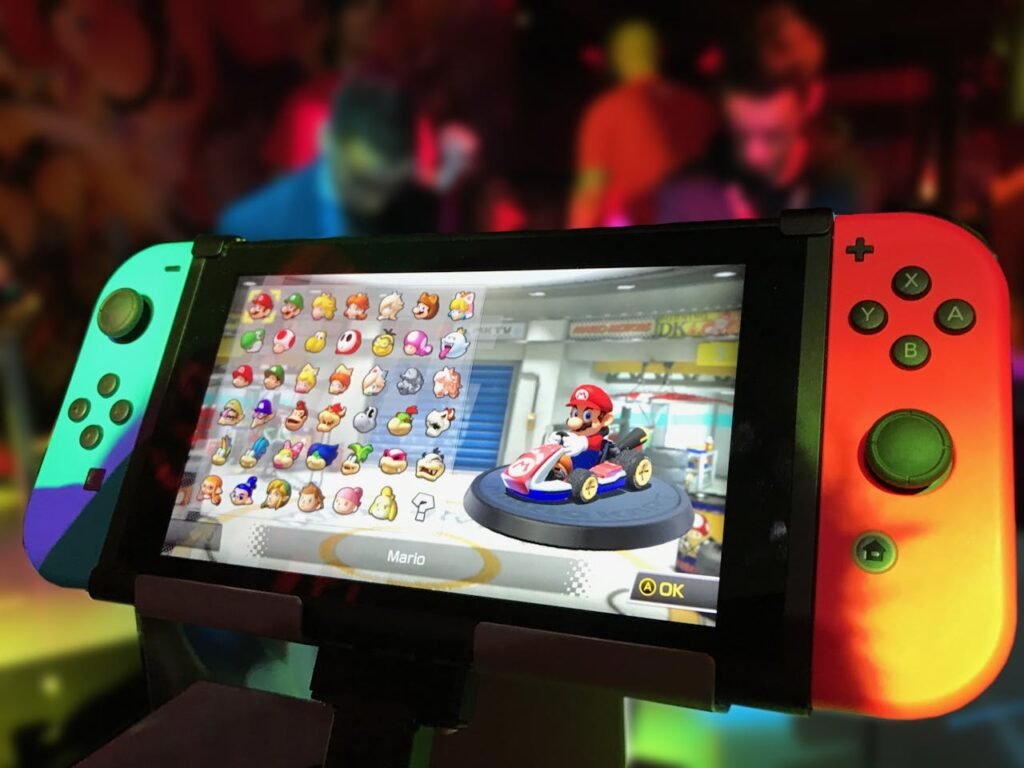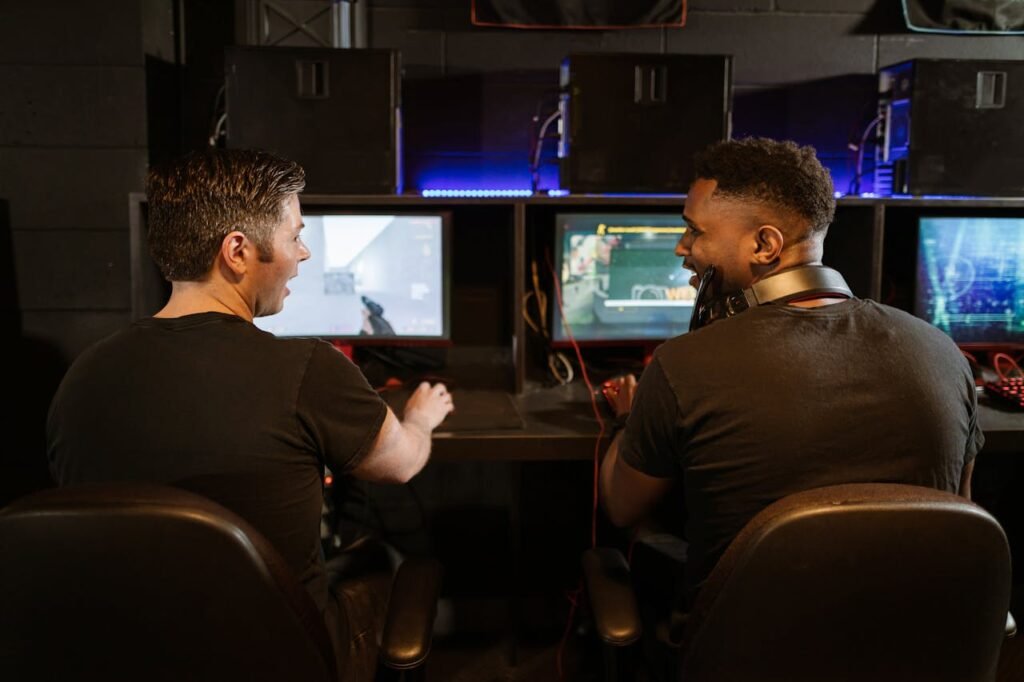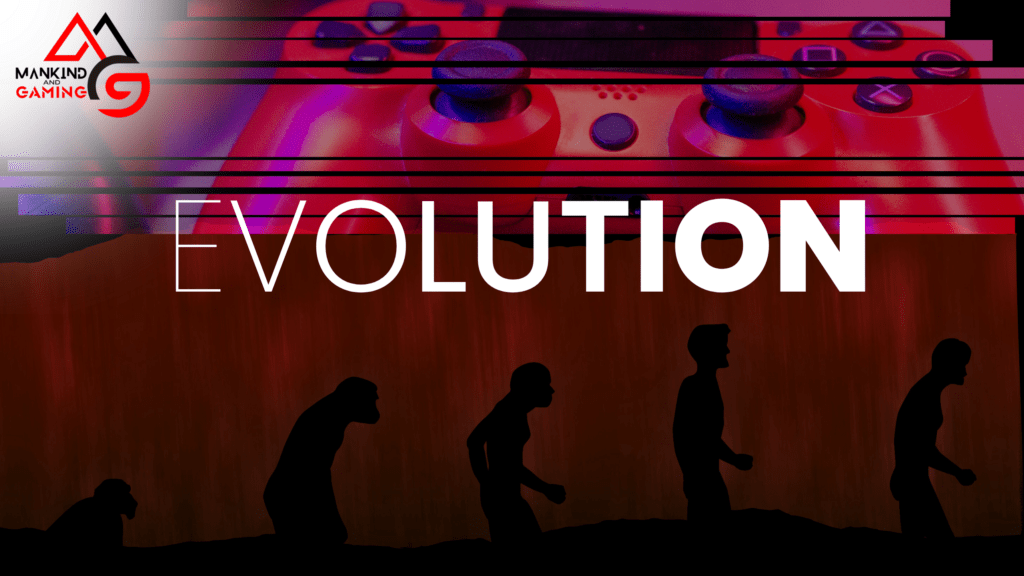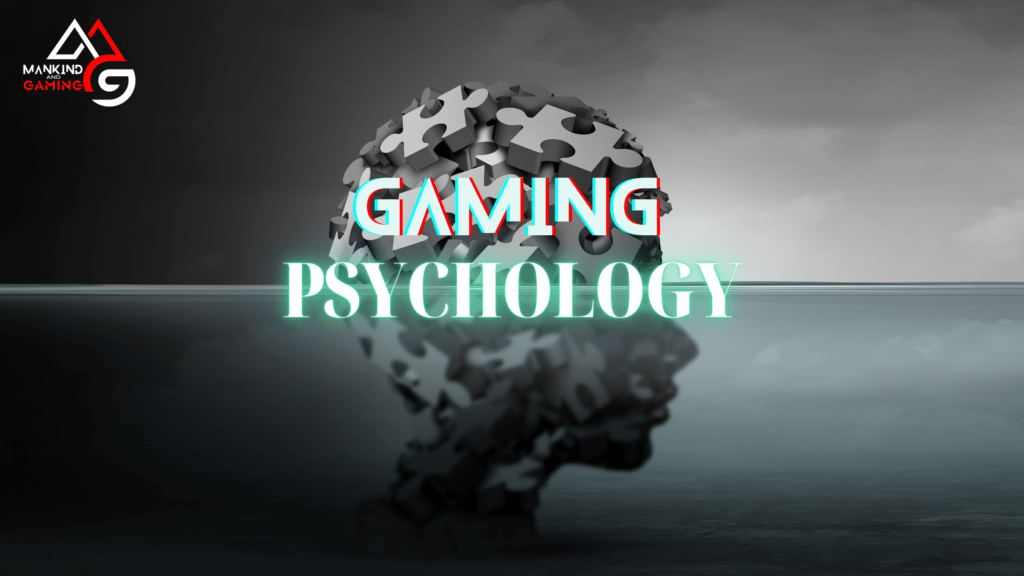
How Video Games Reflect And Shape Human Cultures
By Syed Adon Ahmed Oti-
Video games are a powerful medium that goes beyond mere entertainment; they serve as reflections of our diverse cultures, mythologies, and historical events. They also play a significant role in shaping contemporary cultural trends and influencing societal norms. This blog post delves into how video games encapsulate and depict various cultural aspects, the impact they have on modern culture, and some key examples that highlight these connections.
Video games have evolved over the years, from simple console games to sophisticated virtual realities. One fascinating aspect of game development is the incorporation of ancient civilizations’ cultural themes into the stunning art and design. These games not only entertain but also educate players about our rich history.

The Cultural Significance Of Gaming
Gaming has come a long way since its early days, and it has significantly impacted our culture. Gaming has become more than just a hobby; it has become a lifestyle. It has influenced music, fashion, and even the way we communicate with each other. Gaming has become a language of its own, with its own terms and slang.
One of the most significant impacts that gaming has had on our culture is its ability to bring people together. Gaming has allowed people from all over the world to connect and interact with each other, and it has provided a platform for people to form communities and share their experiences with others.
The Cultural Impact of Video Games
In recent decades, video games have experienced exponential growth in their relevance and social impact. It has turned the leisure product that began in arcades into the largest form of entertainment and cultural expression today and, according to the Entertainment Software Association (ESA) report in 2021, more than 70% of Americans played some kind of video game, and this trend is maintained in successive reports .
in this sense, we can say that video games have become a powerful learning tool in non-formal learning contexts surpassing traditional mass media.
Want More? Sure
Relating video games to culture implies understanding that both elements interact with each other because the video game as a medium allows for the reproduction, assimilation, transmission and creation of culture . From classic video games, today considered cult and study objects exhibited in art museums such as the MoMA in New York or the OXO in Malaga, to the appearance of open-world video games with their representations of entire societies and cultures, all video games, due to their representational and figurative character, have implied cultural transmission.
Researchers state that the relationship between video games and culture is manifested in the medium’s capacity as a powerful element for the dissemination and transmission of knowledge, beliefs, ideas and values , as well as in its capacity to generate new cultural representations that are manifested in the creation and design of new game rules and dynamic structures for playful interactivity. In relation to this topic, if we compare television with video games, we find that in more than 70 years, the only major change in television regarding its interaction with the user is the introduction of colour. By contrast, the world of video games is constantly innovating by including elements that enhance this interrelationship, such as interactive elements, different types of control, motion detection systems, augmented and virtual reality experiences, and even incorporating systems that try to reproduce and transmit pain, heat, wind, etcetera.
The Power of Cultural Influences

Culture is the cornerstone of human society, shaping the way we think, behave, and interact. By integrating cultural influences into game worlds, developers can tap into the power of shared experiences, enabling players to connect with the game on a more personal level. Here’s why incorporating cultural elements in games is crucial:
- Authenticity: Drawing inspiration from real-world cultures lends an air of authenticity to game design. Attention to cultural details, such as traditional customs, clothing, and architecture, creates a more immersive and believable gaming experience.
- Engagement: Incorporating cultural elements can significantly enhance player engagement. When players recognize familiar cultural references in game worlds, they feel a sense of connection and are more likely to invest themselves emotionally in the journey.
- Diversity and Inclusivity: By embracing different cultural influences, game developers contribute to a more diverse and inclusive gaming landscape. This allows players from all backgrounds to see themselves represented in games and fosters a sense of belonging within the gaming community.
Cultural Representation in Modern Video Games

Modern video games have evolved beyond mere entertainment to become a potent cultural medium. They serve as windows into diverse cultures, mythologies, and historical events, while also influencing contemporary trends and societal norms. Let’s explore how video games reflect and shape human cultures, with examples to illustrate their impact.
Narrative Storytelling and Cultural Identity
Cultural Narratives:
Video games often draw inspiration from global myths and folklore, embedding rich cultural stories into their narratives. For instance, the “Assassin’s Creed” series meticulously recreates historical settings and events, offering players a glimpse into different cultural epochs, from Ancient Egypt in “Assassin’s Creed Origins” to the Viking era in “Assassin’s Creed Valhalla.”
Representation of Traditions:
Games like “Ghost of Tsushima” showcase traditional Japanese samurai culture, incorporating authentic music, architecture, and rituals. Such representations not only entertain but also educate players about the nuances of different cultural heritages.
Cultural Diversity and Inclusion
Diverse Character Representation:
Video games are increasingly featuring characters from various ethnic backgrounds, reflecting real-world diversity. Titles like “The Last of Us Part II” and “Horizon Zero Dawn” offer strong, diverse characters, promoting inclusivity and allowing players to see themselves represented in the virtual world.
Global Cultural Exchange:
Online multiplayer games like “World of Warcraft” bring together players from around the globe, facilitating cultural exchange and mutual understanding. These virtual communities often mimic real-world diversity, where players interact and learn about different cultural practices and perspectives.
Authentic Cultural Contexts
Historical Accuracy:
Many games invest in detailed research to recreate authentic cultural and historical contexts. “Red Dead Redemption 2,” for example, offers an immersive experience of the American Wild West, complete with period-specific customs, attire, and dialects. This commitment to authenticity enhances the educational value of games and ensures accurate cultural portrayals.
Influence of Video Games on Contemporary Culture

Cultural Trends and Fashion
- Influence on Fashion: Video games significantly influence contemporary fashion trends, with game-inspired clothing and accessories becoming mainstream. For example, the popularity of esports and gaming conventions has led to an increase in game-themed merchandise and cosplay.
- Pop Culture Integration: Games have seamlessly integrated into mainstream culture, influencing movies, music, and television. The success of game-based films like “The Witcher” series and the “Resident Evil” franchise highlights the cultural crossover between gaming and other entertainment mediums.
Economic Impact and Cultural Commodification
- Gaming as an Industry: The video game industry has grown into a multi-billion-dollar global market, underscoring its economic and cultural significance. According to Newzoo, the global games market was valued at $159.3 billion in 2023, with projections for continued growth, demonstrating the substantial impact of gaming on the global economy.
- Cultural Products: Video games have become cultural artifacts that contribute to economies, not only through direct sales but also via merchandise, licensing, and ancillary industries such as streaming and esports.
Educational and Cultural Preservation Tools
- Educational Applications: Video games are increasingly being used as educational tools, teaching history, language, and cultural practices. “Civilization VI,” for instance, allows players to build and manage civilizations, offering insights into historical development and cultural dynamics.
- Preserving Cultures: Games like “Never Alone (Kisima Ingitchuna)” incorporate traditional indigenous stories and languages, helping to preserve and promote cultural heritage. These digital narratives serve as repositories of cultural knowledge for future generations.
The Symbiotic Relationship Between Games and Culture

It all comes down to the symbiotic relationship between men and games which brings forward cultural representation and evolution.
Games are one of the major sources of Dynamic Cultural Reflection. As cultures evolve, so do the narratives and settings in video games. This dynamic relationship ensures that games remain relevant and reflective of contemporary cultural shifts. For instance, “Cyberpunk 2077” explores themes of dystopia and societal change, mirroring current global concerns.
Games often act as platforms for Cultural Critique and Commentary
Cultural critique, exploring themes like identity, conflict, and societal issues. “Detroit: Become Human” delves into themes of artificial intelligence and human rights, providing commentary on current ethical dilemmas.
Gaming as a Cultural Artifact
Iconic games become Cultural Milestones, remembered and celebrated for their impact on society and culture. Games like “The Legend of Zelda” and “Super Mario Bros.” are not just entertainment but cultural touchstones that have influenced generations.
Video games are increasingly recognized as part of Digital Heritage. Organizations like the Library of Congress and the Museum of Modern Art archive games, acknowledging their cultural and historical significance.
Statistical Significance of Gaming in Culture
Global Reach: As of 2023, there were approximately 2.7 billion gamers worldwide, indicating the widespread cultural influence of gaming. This massive engagement highlights the role of games in shaping modern culture.
Engagement and Consumption: The average gamer spends about 7.6 hours per week playing video games, demonstrating the significant role games play in daily life and cultural practices around the world.



